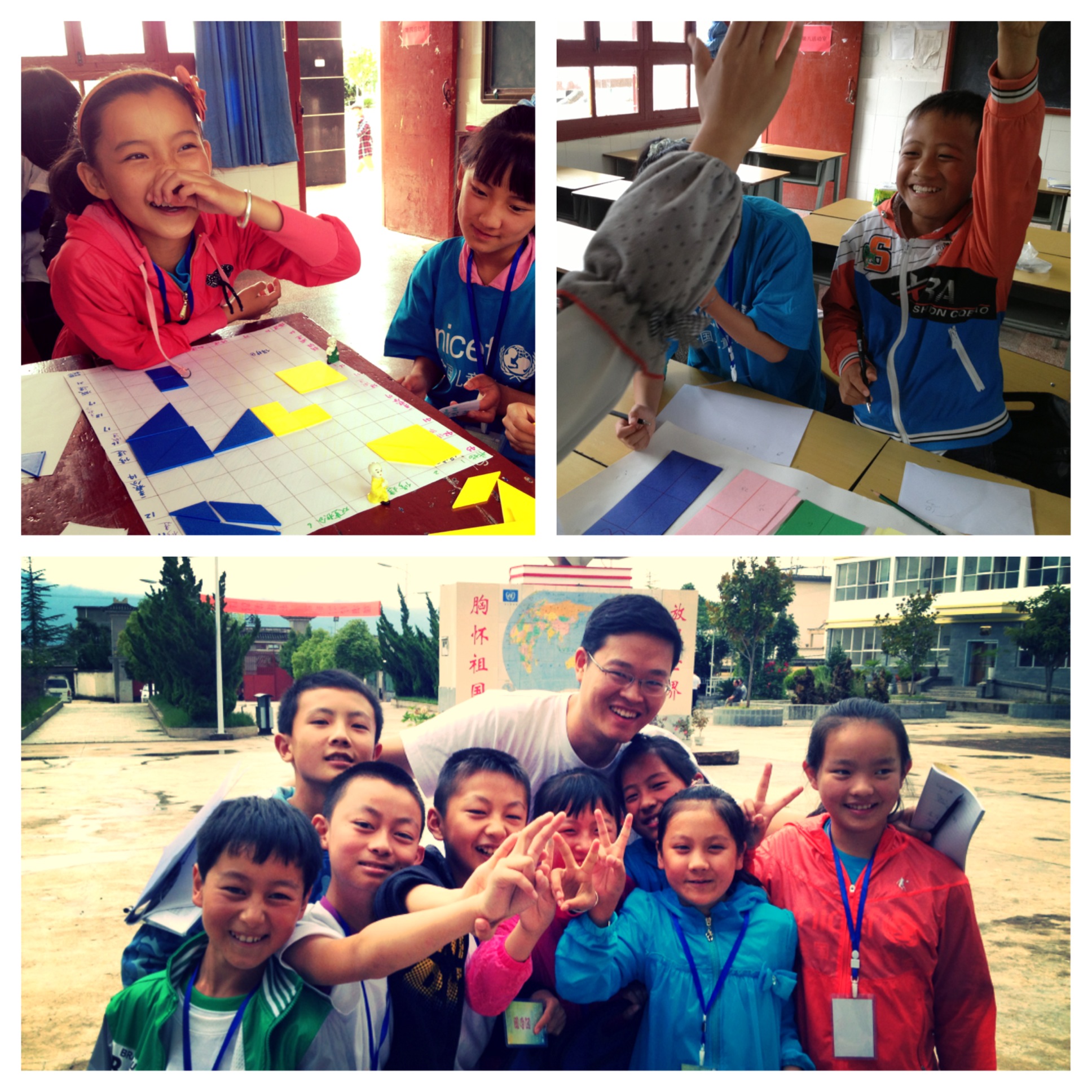By Fu Ning, Research Assistant of UNICEF China
 |
|
©UNICEF/China/2015 |
I often hear parents complaining about children's lack of interest in learning. Children may easily lose their patience and persistence when learning new concepts or solving difficult problems. We were all children once and we know that children love playing games. Imagine you as a kid and were given an algebrahomework assignment and a board game for your free choice, which one would you pick? Well, I would pick the game without even a second's hesitation. I'm not saying that we should not discipline our children, but we should also try to make learning more fun so that children will choose learning out of their own will.
The NMC Horizon Report: 2014 K-12 Edition by the New Media Consortium, an international community of experts in educational technology,highlighted that, “Although still in its nascent stages in education, the gamification of learning environments is gaining support among educators who recognize that effectively designed games can stimulate large gains in engagement, productivity, creativity and authentic learning.”
Since 2011, UNICEF China has been exploring the use of educational games to improve learning outcomes and make learning more fun. As an important component of the Skills, Motivation and Imagination for Learning Excellence (SMILE) project, educational games are designed by project experts and UNICEF summer interns to help students better understand difficult curriculum areas, then tested by students and teachers in pilot schools before massive production. In the meantime, the organization is also cooperating with the Graduate School of Education, Peking University (PKU), to trial ICT-based educational games.
I still remember the summer camp in Jianchuan, a poor county in Yunnan Province. After dinner, we told the pupils that they could either play board games in the classroom or video games carefully selected by experts from PKU in the computer room. Children cheered with joy and ran quickly across the campus towards the ‘game rooms'. There they discussed seriously with peers about what would be the best move next, calculated carefully the decimals, percentages and fractions to avoid getting penalty points, and sincerely congratulated the team that won the game without a single mistake. Almost no one reacted to the ringing bell. My colleagues and I took about 10 minutes gently reminded them that the class was over and it was time to go home.
Learning can be fun and children truly love it!
Reference:
New Media Consortium, The NMC Horizon Report: 2014 K-12, 2015, http://cdn.nmc.org/media/2014-nmc-horizon-report-k12-EN.pdf





























